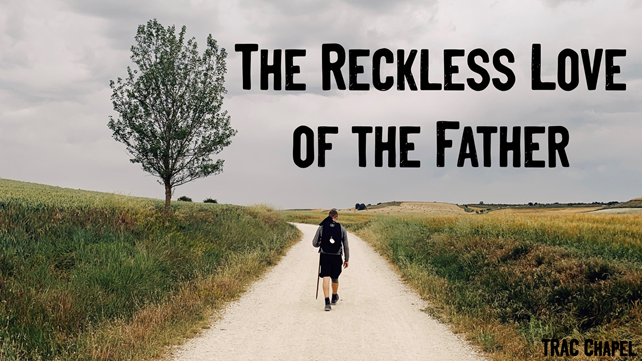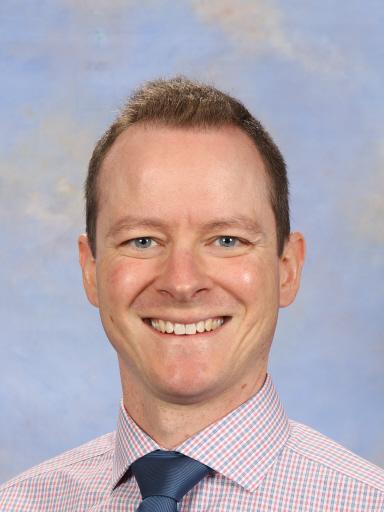COLLEGE CHAPLAIN

Before we all listened to music on demand with Spotify etc, we used to use a radio, and often for a song to fit into the allotted time on the radio program the song would be shortened into what is called a ‘radio edit’. If you liked the song and went out and bought the album—people used to do that too—you might be surprised to hear a longer, fuller version of the song. This fuller version might have an extra verse and chorus, a guitar solo, a deep haunting bridge in the middle, or it might trail off at the end into a completely different melody line that adds a jarring contrast to the song.
This term in Chapel we have been mining the depths of one of Jesus’ most famous parables, which accords with the radio edit/fuller album version paradigm. I’m referring to what is often referred to as The Parable of the Prodigal Son. The nice short, poppy radio edit that you might be familiar with is the part of the story that finishes with the return of the young son and the father throwing a huge party. All is well and they dance the night away.
That’s the radio edit, but the fuller, unedited version adds the dark chapter of the grumbling older brother. There’s no resolution to that jarring melody line. It’s unnerving, but like a fuller album track it makes the story richer, more complex. In fact, the fuller version makes this the most scandalous of all of Jesus’ parables. The more you mull over this story the more it reveals. If you want to know exactly what you think about God and what makes him tick, then this is the story for you.
It might seem odd for me to say ‘for you to know exactly what you think about God’, but I’ve phrased it that way because for most of us, what we think about God probably isn’t all that much. Today’s average Australian is not that convinced or fussed about God even existing at all. Certainly, if he does exist then most of us have already sketched a simple game plan for how to deal with the big fella, and we’ve just assumed that it will see us get into his good books. This story of two brothers puts the blowtorch to that game plan. Even if you’re a Christian, one of the signs that you may not have grasped the unique and radical nature of the Gospel is that you are certain that you already have. A key part of my job as Chaplain is to continually remind myself of the riches of the Gospel and not become complacent about it. That’s why I love this story that Jesus told and it is why I’ve been so excited to spend this term sitting under its blowtorch.
Nevertheless, it’s wrong to call this a mere story. Jesus calls it a parable, and there’s a key difference between a story and a parable. The events of a story and a parable might both be fictitious, but a parable is always the truth—the truth about God and us. Jesus taught the truth about the kingdom of God through his parables, or more precisely, he hid the truth in these parables. Those who understood the parables followed Jesus into this truth, but those who refused to follow Jesus were left in the parable’s riddle.
It’s also wrong to call this parable The Parable of the Prodigal Son, and that’s not just because there are two sons, not one. It’s go to do with that word ‘prodigal’ and who really is prodigal in this parable. We still use the proverbial saying ‘the prodigal son returns’, like when Gary Ablett came back to his home club of Geelong in the twilight of his career. When used this way we can assume that ‘prodigal’ meant something like ‘runaway’ or ‘wayward’. However, ‘prodigal’ means to ‘spend recklessly, without keeping account of the cost’. As we see in Jesus’ parable, this is somewhat like what the younger son does, but it is the Father who is the most reckless in what he spends.
The Father is completely reckless, because he refused to reckon the younger son’s debt. He refused repayment, there was no reckoning. The Father is the Prodigal. For the Father in Jesus’ parable is God the Heavenly Father; the one who in his reckless loving grace, did everything he could to get us back from sin, and does not count the cost against us. Indeed, the Apostle Paul writes of this grace saying: ‘In Christ, God was reconciling the world to himself, not reckoning their trespasses against them’ (2 Corinthians 5:19).
So this is not the parable of the prodigal son, this parable is the truth of the Prodigal God, whose reckless love is our greatest hope, a life-changing experience. This parable is the disruptor of everything you thought you knew about God. It is not just a simple radio edit that is over and done with in 2 and a half minutes. No, this melody line runs deep into our soul for eternity.
This is an edited extract from the opening talk of this term’s Chapel series. You can listen to each week’s Chapel talk on Spotify, Apple Podcasts, or wherever you get your podcasts.
Gareth Tyndall | College Chaplain


